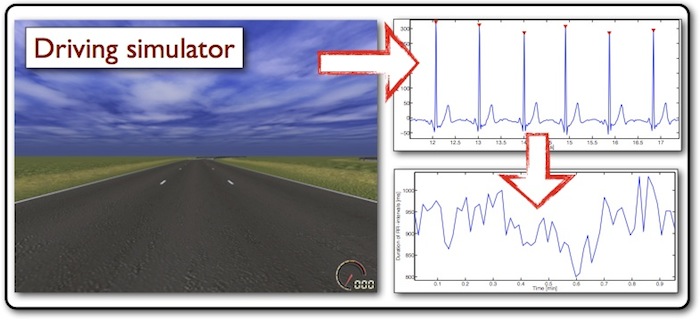Developing a robust method to detect and characterize the effect of mental stress on the electrocardiogram
- chair:Medical measurement technology / Digital signal processing
- type:Master thesis
- tutor:
- person in charge:
-
Motivation
The normal rhythm of the heart is the sinus rhythm. It is controlled by a very complex interaction of the autonomic nervous system. The sympathetic system accelerates the heart rate weather the parasympathetic system is responsible for slowing it down. The perfect balance between the two counterparts of the nervous system is what makes the physiology of the human heart work so stable. However, this equilibrium can cease in pathological or extreme situations. High amount of mental stress is one of them. This phenomenon can be investigated measuring the electrocardiogram (ECG).
In order to investigate and quantify how mental stress can affect the normal heart rate and the ECG morphology, an experiment has been developed in cooperation with the research team at IFAB here at the KIT. 30 students will be taking place at the experiment where stressful tasks will be solved while their ECG is being recorded.

Tasks
In this project, a robust algorithm for the detection and characterization of mental stress based only on ECG parameters should be developed. Different methods presented in the literature together with new techniques should be developed and evaluated. Accurate assessment of stages of mental stress is the final goal.
Requirements- Literature research
- Programming skills in MATLAB
- Strong fundamentals of signal processing
- Statistics and data mining
- Ideally some fundamentals of cardiac physiology

